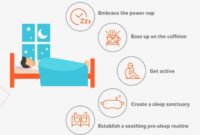Succeeding academically requires more than just attending classes. It demands a proactive and strategic approach to learning. Here are some effective study tips to help you make the most of your study time and improve your overall academic performance:
1. Create a Study Schedule and Stick to It
Consistency is key. Develop a realistic study schedule that allocates specific times for each subject. Treat these study sessions like appointments and commit to them. A visual planner or digital calendar can be immensely helpful. Be sure to schedule breaks and downtime too; burnout is a real threat.
2. Find Your Optimal Study Environment
Everyone learns differently. Identify the environment where you are most focused and productive. This could be a quiet library, a cozy coffee shop, or even a designated space at home. Eliminate distractions such as social media, television, and noisy housemates. Ensure you have good lighting, a comfortable chair, and all the necessary materials readily available.
3. Break Down Large Tasks into Smaller, Manageable Chunks
Facing a massive assignment or a stack of readings can be overwhelming. Divide the task into smaller, more manageable pieces. This makes the overall workload seem less daunting and provides a sense of accomplishment as you complete each step. For example, instead of “Read Chapter 5,” break it down into sections: “Read section 5.1,” “Take notes on 5.1,” “Read section 5.2,” etc.
4. Utilize Active Recall and Spaced Repetition
Passive reading is not enough. Actively engage with the material by using active recall. After reading a section, try to recall the main points without looking at your notes. Spaced repetition involves reviewing material at increasing intervals. This strengthens memory and helps retain information for longer periods. Flashcards, practice quizzes, and self-testing are excellent tools for both active recall and spaced repetition.
5. Take Effective Notes
Note-taking is an art. Focus on capturing the key concepts and ideas, not just verbatim transcripts. Use abbreviations, symbols, and visual cues to condense information. Review and revise your notes regularly to reinforce your understanding. Consider different note-taking methods, such as the Cornell method, mind mapping, or outlining, to find what works best for you.
6. Collaborate with Classmates (Responsibly)
Studying with classmates can be beneficial, but it’s crucial to approach it responsibly. Form study groups to discuss complex topics, share notes, and quiz each other. However, avoid relying solely on others for answers; ensure you are actively contributing to the learning process.
7. Prioritize Sleep, Nutrition, and Exercise
Your physical and mental well-being are essential for effective learning. Get adequate sleep to consolidate memories and improve cognitive function. Eat nutritious foods to fuel your brain and body. Regular exercise reduces stress and improves focus. Don’t underestimate the impact of these factors on your academic performance.
8. Seek Help When Needed
Don’t hesitate to seek help from professors, teaching assistants, or academic advisors when you are struggling. They are valuable resources and can provide clarification, guidance, and support. Early intervention can prevent academic difficulties from escalating.
By implementing these effective study tips, you can enhance your learning experience, improve your academic performance, and achieve your full potential as a student.



